Government Electric Car Grant: Which cars get them and how to save even more
Zero-emission vehicles where at least one version of a range costs £37,000 or less could be eligible for the Electric Car Grant, meaning savings of up to 10% for EV buyers.
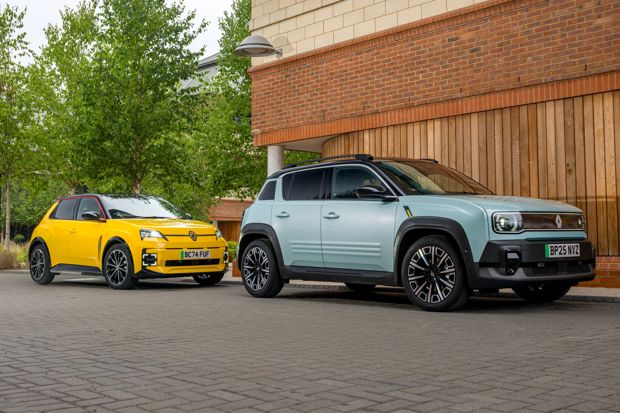
What is the Electric Car Grant?
Effectively replacing the old Plug-in Car Grant (PiCG) which was discontinued in June 2022, the Electric Car Grant's (ECG) is the UK government's attempt to help overcome a key barrier to electric car adoption — their high up-front costs.
Since changes to the Expensive Car Supplement — the so-called luxury car tax — were introduced in April 2025 meant that electric cars were no longer exempt, manufacturers had targeted selling EVs priced under £40,000 in order to dodge it.
Now that the ECG has been introduced, a flurry of more radical model mix realignment and price-shuffling to broaden the range of cars that could qualify for it has occurred, with more set to follow.
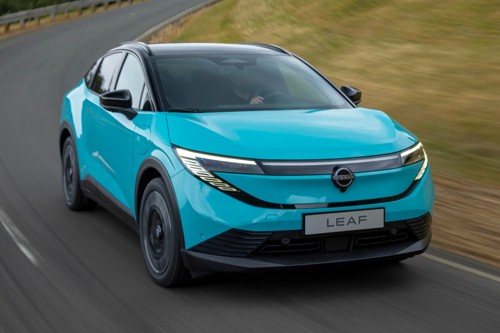
Why? Within the government's ECG rules is an element that ensures several electric cars costing over £37,000 will also qualify for the discount. For that to happen those pricier models must mirror the technical specifications of a version in the range that is priced no higher than the £37k qualifying price.
That means if a manufacturer already sells a low-specification variant of an EV for £37k or lower, providing there's no change to the bodywork, battery capacity, which wheels are driven or the electric motor's power output, mechanically identical versions in more expensive trim levels or packed with extra-cost options will still receive the ECG discount.
While there was initially no upper limit to the prices of more expensive versions that could also be eligible, the government closed that loophole by introducing a £42,000 cap, effective from 29 August 2025.
While several brands have already reduced the prices of several entry-level EVs to sub-£37,000 in order to be eligible, this £42k price cap will likely result in further price and equipment level shuffling so that more versions qualify. Don't be surprised if there's also an eruption of high-specification special editions of lower-powered, smaller-batteried electric cars released in the months ahead.
Since the ECG was announced, several brands had already introduced their own discounts ahead of the grants going live on 11 August. Many of those are models which were unlikely to qualify for the grant in the first place.
How do cars qualify for the Electric Car Grant?
The ECG scheme opened on 16 July 2025 with funding available until at least the 2028/29 financial year. It's the manufacturers, not car buyers, that apply for the grant, meaning it will be deducted automatically at the point of sale. Car manufacturers' price lists and online configurators will be adapted to reflect the discounted prices.
Those models which qualify for the ECG will be published on a government portal that will be updated regularly to reflect changes to existing model ranges and when new ones are launched.

Eligibility will be based on 'the highest manufacturing sustainability standards,' said the government. This factors-in emissions produced during production which it is understood will most likely incentivise EVs built in the UK and countries geographically closer to it over those manufacured in Asia.
Whether this will encourage more firms to consider British-built EVs or to accelerate existing plans to shift production from China to the UK — as is expected for the MINI Cooper Electric in 2026 — remains to be seen.
Other eligibility criteria for the ECG include the vehicles being:
- Battery- or hydrogen fuel cell-powered
- Cars designed primarily for carrying passengers — classed by the DVLA as M1 vehicles
- Van-based MPVs if classed as M1 vehicles — goods-carrying vans (N1 and N2) cannot qualify
- Capable of a WLTP Combined cycle driving range of at least 100 miles
- Capable of a maximum speed of at least 60mph — light quadricyles (L6 and L7) such as the Citroen Ami cannot qualify
The government says car buyers will benefit from discounts as soon as manufactures successfully apply for their zero-emission cars to be part of the grant scheme. The most sustainably produced models will be approved for the £3750 Band 1 discount, while those which meet some of the criteria will be eligible for the £1500 Band 2 reduction.
Which EVs are eligible for the Electric Car Grant?
Details of exactly which models are eligible for either level of grant applied to each of them are being confirmed on an ongoing basis from 11 August 2025.
The up-to-date tables below reflect the positions of each EV on sale in receipt of the ECG or which could potentially qualify.
ECG Band 1 cars receiving a discount of £3750
The following cars have had their prices reduced by £3750 by qualifying for Band 1 of the Electric Car Grant:
| Brand and model | Eligible versions |
| Citroen e-C5 Aircross | Extended Range models |
| Ford Puma Gen-E | All |
| Ford E-Tourneo Courier | All |
ECG Band 2 cars receiving a discount of £1500
The following cars have had their prices reduced by £1500 by qualifying for Band 2 of the Electric Car Grant:
| Brand and model | Eligible versions |
| Alpine A290 | All |
| Citroen e-C3 | All |
| Citroen e-C3 Berlingo | All |
| Citroen e-C4 | All |
| Citroen e-C4 X | All |
| Citroen e-C5 Aircross | Comfort Range models |
| Citroen e-Berlingo | All |
| Citroen e-SpaceTourer | You models |
| Cupra Born | 59kWh and 79kWh models |
| DS 3 E-Tense | All |
| DS No4 E-Tense | All |
| MINI Countryman Electric | All |
| Nissan Micra | All |
| Nissan Ariya | Engage and Advance front-wheel drive models |
| Peugeot E-208 | All |
| Peugeot E-2008 | All |
| Peugeot E-308 | All |
| Peugeot E-308 SW | All |
| Peugeot E-408 | All |
| Peugeot E-Rifter | All |
| Peugeot E-Traveller | Combi models |
| Renault 4 E-Tech | All |
| Renault 5 E-Tech | All |
| Renault Megane E-Tech | All |
| Renault Scenic E-Tech | All |
| Skoda Elroq | SE, SE L, Edition and SportLine models |
| Skoda Enyaq | 60 models |
| Toyota Proace City Verso Electric | All |
| Vauxhall Corsa Electric | All |
| Vauxhall Astra Electric | All |
| Vauxhall Astra Sports Tourer Electric | All |
| Vauxhall Frontera Electric | All |
| Vauxhall Mokka Electric | All |
| Vauxhall Grandland Electric | All |
| Vauxhall Combo Life Electric | All |
| Vauxhall Vivaro Life Electric | Combi models |
| Volkswagen ID.3 | Pure 52kWh, Pro 59kWh and Pro S 79kWh models |
| Volkswagen ID.4 | Pure 52kWh and Pro 77kWh Essential models |
| Volkswagen ID.5 | Pure 52kWh and Pro 77kWh Essential models |
Other potentially ECG-eligible cars
The following cars potentially qualify for the Electric Car Grant in terms of price but don't have their compliance against other criteria confirmed:
| Brand and model | Potentially eligible versions | Grant status |
| Abarth 500e | All | Manufacturer incentives |
| Abarth 600e | Standard model only | Manufacturer incentives on all |
| Aion UT | TBC | TBC* |
| Aion V | TBC | TBC* |
| Alfa Romeo Junior Elettrica | All 156 models | Manufacturer incentives on all |
| BYD Dolphin Surf | All | TBC |
| BYD Dolphin | All | TBC |
| BYD Atto 2 | All | TBC |
| Changan Deepal S05 | TBC | TBC* |
| Dacia Spring | All | TBC |
| Fiat Grande Panda Electric | All | Manufacturer incentives |
| Fiat 500 Electric | All | Manufacturer incentives |
| Fiat 600e | All | Manufacturer incentives |
| Geely EX5 | All | Manufacturer incentives |
| GWM Ora 03 | All | Manufacturer incentives |
| Hyundai Inster | All | Manufacturer incentives |
| Hyundai Kona Electric | All | Manufacturer incentives |
| Jaecoo E5 | All | TBC |
| Jeep Avenger Full-Electric | All | Manufacturer incentives |
| KGM Torres EVX | All | TBC |
| Kia EV3 | All | Manufacturer incentives |
| Kia EV4 | All | Manufacturer incentives |
| Leapmotor T03 | All | Manufacturer incentives |
| Leapmotor B05 | TBC | TBC* |
| Leapmotor B10 | All | Manufacturer incentives |
| Leapmotor C10 | All | Manufacturer incentives |
| MG 4 EV | All | Manufacturer incentives |
| MG S5 EV | All | Manufacturer incentives |
| MG S6 EV | TBC | TBC* |
| MINI Cooper Electric | All | Manufacturer incentives |
| MINI Aceman | All | Manufacturer incentives |
| Nissan Leaf | TBC | TBC* — Band 1 £3750 expected |
| Omoda E5 | All | TBC |
| Renault Twingo E-Tech | TBC | TBC* |
| Skoda Epiq | TBC | TBC* |
| Skywell BE11 | Standard Range model only | Manufacturer incentives |
| Smart #1 | Pure, Pro, Pro+ and Premium models only | Manufacturer incentives on all |
| Smart #3 | Pro model only | Manufacturer incentives on all |
| Suzuki e Vitara | All | Manufacturer incentives |
| Toyota Urban Cruiser | TBC | TBC* |
| Toyota C-HR+ | TBC | TBC* |
| Volkswagen ID.Polo | TBC | TBC* |
| Volvo EX30 | Single Motor Standard Range models only | Manufacturer incentives on all |
*On sale imminently, prices TBC
Which manufacturers are offering their own EV 'grants'?
There's something of a state of uncertainty as we await gradually released news on which cars will be eligible for the government's Electric Car Grant and at which level of discount. This delay has encouraged some manufacturers to seize the initiative.
In some cases the highest Band 1 level of grant worth £3750 is being matched, even for cars which are unlikely to qualify for that level — if any at all — under the ECG scheme.
It's a rapidly changing situation with new deals being announced regularly — below are the currently available manufacturer-funded electric car 'grants':
Abarth E-Grant

Proving you can snag a discount on something fun, a £1500 discount is available on both the Abarth 500e and 600e ranges courtesy of Fiat's E-Grant. Under the ECG scheme the range-topping 280PS Abarth 600e Scorpionissima isn't potentially eligible, but it is included within this E-Grant offer.
Applicable to private customers ordering before 31 December 2025 it can be combined with other retail incentives, including 0% finance.
Alfa Romeo EV Grant

Offering a £1500 discount across the entire Junior Elettrica range, the Alfa Romeo EV Grant is available to private buyers and runs until 1 January 2026. If the Alfa Romeo Junior Elettrica does qualify for the ECG it will only apply to the 156 models, not the range-topping Veloce as this price reduction does.
Alfa Romeo's EV Grant is in addition to existing offers, including the free installation of a home wallbox worth over £1000. Alfa Romeo UK's managing director, Jules Tilstone, said the deal is intended 'to underscore the commitment Alfa Romeo has in making electrification more accessible'.
Fiat E-Grant
.jpg?rmode=max&width=601&height=400)
If you're not interested in anything quite as spicy as their Abarth twins, Fiat's 500 Electric and 600e are both available to buy with a £1500 discount, as is the Grande Panda Electric, thanks to the manufacturer's own E-Grant incentive. It also runs through to 31 December 2025 and can be used in conjunction with 0% finance and any other discounts you're able to negotiate as a private buyer.
Geely EV Grant
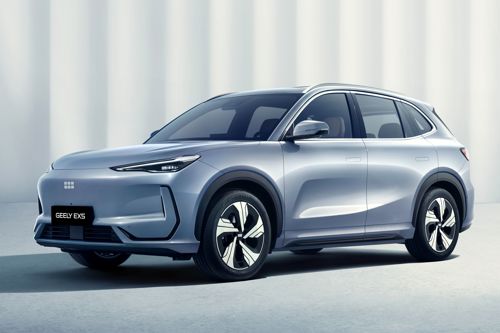
A new player on the UK market under its own name it may be but the Chinese brand which owns Lotus, Polestar, Volvo and 50% of Smart has gone in hard with the launch of its Geely EX5 family SUV.
Already priced attractively, the EX5 is now even less expensive thanks to the Geely EV Grant discount scheme which runs to 31 December 2025. How much money is lopped-off depends on the version of the EX5 you choose — the SE model is discounted by £2300, the Pro to the tune of £3200, while there's £3750 deducted from the cost of the range-topping Max.
GWM Green Grant

GWM has used the announcement of its own Green Grant offer to criticise what it alleges is a lack of clarity around the ECG scheme: 'The initiative follows the recent announcement that the UK government’s (EV) grant will focus on a specific set of vehicles, leaving many customers confused and waiting to see if models like ORA 03 will qualify,' it said. The subtext here is that GWM doesn't expect its Chinese-made Ora 03 to be eligible for the ECG.
Nevertheless GWM's Green Grant, which runs until 31 December 2025, is one of only a few manufacturer discounts which matches the full £3750 Band 1 level of grant. This brings the price of the cheapest GWM Ora 03 — the car formerly known as the Funky Cat — down to £21,245, a price cut we think it's been crying — meeowing? — out for amid the arrival of far cheaper competitors.
Hyundai Electric Grant

Another EV we thought was too expensive for its own good is the excellent Hyundai Inster. Great news, then — thanks to the Hyundai Electric Grant discount scheme £3750 has lopped-off the price for all private buyers ordering before 4 January 2026, bringing the entry-level Inster 01 under the £20,000 mark.
Aside from the Inster, only the Kona Electric is expected to be potentially elibible for the government's ECG, yet Hyundai's own Electric Grant also sees a £1500 reduction applicable to the rest of its EV range, including the Hyundai Ioniq 5 N performance car and the newly launched Hyundai Ioniq 9 seven-seater SUV.
Jeep EV Grant
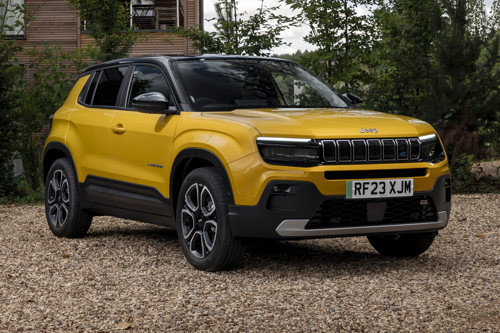
Although some Stellantis brands have been on the ball and sorted out the official ECG discounts across much of their EV ranges, not all have, with the Jeep Avenger Full-Electric being one such model that's languishing as it awaits its eligibility confirmation.
Should it qualify, the discount is likely to be at the Band 2 £1500 level which makes the Jeep EV Grant price reduction all the more interesting. Order your Avenger Full-Electric before 31 December 2025 and you'll enjoy having £3750 knocked off the price of any trim level in a deal which can be used in conjunction with 0% finance and any other negotiated discounts.
Kia Electric Car Allowance

While all versions of the Kia EV3 plus the box-fresh Kia EV4 and EV4 Fastback are potentially eligible for the government's ECG scheme, the brand has launched its own Electric Car Allowance — albeit with restrictions.
Kia's discount enables private buyers to enjoy £3750 off the price of an EV3 or EV4 but only in entry-level Air specification. Additionally, the cars have to be bought on a PCP through Kia's own finance scheme to qualify with a 3.9% APR.
If you fancy a higher specification GT-Line or GT-Line S version then Kia's Electric Car Allowance discount reduces to a still useful £1500. Deals run until 16 December 2025.
Leapmotor Leap-Grant

'Why wait for the government? Leapmotor UK is giving drivers an instant head start with our very own electric car grant,' is the cheerily enticing message on the Chinese brand's website. We'll forgive the Leap-Grant for the curious hyphen usage in its name because it's another scheme offering up to £3750 — and from a brand where the ECG discount is unlikely to apply.
Only the C10 SUV receives the larger discount, with the cheaper T03 city car and the new Leapmotor B10 having a more modest £1500 knocked off its price. Available on cars ordered by 31 December 2025 the Leap-Grant can't be combined with other offers unless explicitly stated.
MG EV Car Grant

Under the guise of the Ronseal-alike MG EV Car Grant name, £1500 discount is available on the MG 4 EV — including the XPower version — and the MG S5 EV, but not the Cyberster roadster or the newly launched IM5 saloon and IM6 SUV models. The reduction is offered 'over and above any incentives currently offered by MG’s 155 UK dealer partners' and runs until 31 December 2025.
'MG has been a key contributor to the EV sector, consistently recognising the economic and environmental benefits of introducing a wide range of affordable, electric-only models,' said MG's UK commercial boss, Guy Pigounakis, adding: 'this announcement underlines this commitment and in addition to this, we will also seek to work constructively with the Government to further increase the sale of EVs.'
MINI Electric Car Grant
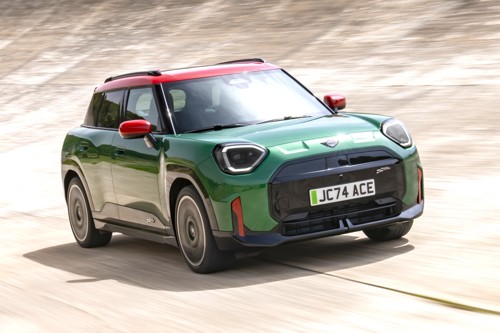
While the larger MINI Countryman Electric is in receipt of a £1500 government ECG discount, the dinkier Cooper Electric and Aceman ranges aren't — yet, at least.
To bridge the gap the company has launched its own MINI Electric Car Grant for the smaller models, across their entire ranges, including the raciest John Cooper Works variants, but not the limited edition Paul Smith versions. It's also worth £1500 and can be used in conjunction with other retail offers up to 5 January 2026.
Skywell EV Switch Incentive

Relative newcomer to the UK market, Skywell has also drawn attention to the complicated and potentially lengthy nature of the ECG application process: 'A number of caveats and requirements have been set by the government before any vehicle is approved onto the new electric car grant scheme, which has left manufacturers, dealers and customers in limbo,' said Skywell UK general manager, David Clark. 'We want to start this process immediately, but we must first gather all the required documentation from Skywell, which could take many months.'
Potentially eligible for the ECG in Standard Range form, Skywell is also offering £3750 off the BE11 Long Range's price thanks to its EV Switch Incentive, on top of its existing £6000 finance deposit scheme. That's right, nearly £10,000 off the cost of the Skywell BE11, along with £3000 of charging credit. Dealers will be hoping something attracts customers as sales have barely got into double figures so far in 2025.
Smart

The reborn Smart brand was already offering a £2000 discount on most of its stock of the #1, plus £3000 off the range-topping Brabus model, in an attempt to stimulate lacklustre sales. That level of discount has swollen by a further £1500 range-wide Smart EV Car Grant to boost those savings by up to £4500.
Smart's EV Car Grant also provides a range-wide £1500 discount for the #3 on top of an existing £1000 reduction on Pro and Pro+ versions and £2000 off the Brabus. Available until 31 December 2025 these sale prices are likely to beat any potential ECG discounts available to Smart.
Suzuki Granted

Just launched, the Suzuki e Vitara is the Japanese firm's first EV and it's now looking a whole lot more tempting thanks to a range-wide Suzuki Granted discount of £3750, giving a new starting price of £26,249.
Setting this deal apart from the others announced so far is Suzuki's commitment to running it until the end of 2025 and it includes the supply and installation of an Ohme domestic wallbox charger.
Volvo EV Grant

When the ECG applications are sorted out, only the Single Motor Standard Range versions of Volvo's popular EX30 are expected to qualify. That makes the £1500 discount available with the Volvo EV Grant all the more tempting as it applies to all EX30 battery sizes and trim levels.
Used in conjunction with Volvo's PCP finance deals but the APR rate varies with the choice of trim level — EX30 Plus and Ultra versions are at 0%, the entry-level Core is at 2.9%, while the rugged-looking EX30 Cross Country has the highest rate at 5.9%.
If you don't fancy a PCP, the £1500 Volvo EV Grant discount is also available to those funding their EX30 as a cash purchase.
All versions barring the EX30 Core additionally come with an Ohme wallbox charger, inclusive of standard installation costs.
